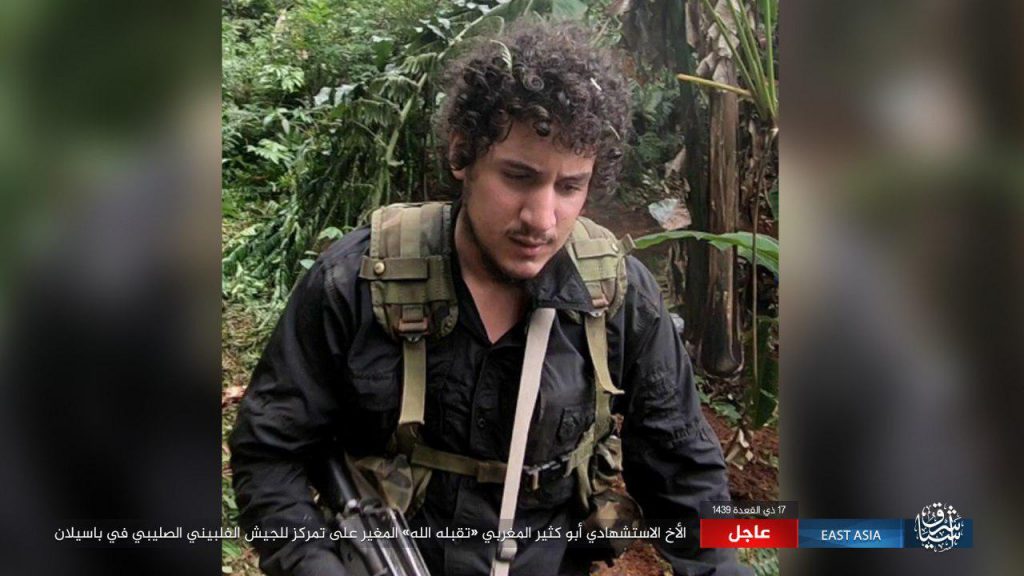
The Islamic State has claimed responsibility for a suicide bombing at a military checkpoint in Lamitan, a city in the Basilan province of the Philippines. At least 10 people were killed and several others wounded in the blast, according to initial press reports. The so-called caliphate has posted a picture of the bomber, who is identified as Abu Kathir al-Maghrebi (seen above).
The suicide bomber’s alias indicates that he is from the Maghreb and likely a Moroccan. Indeed, pro-Islamic State Telegram channels said the “martyr” was from Morocco.
According to CNN, military officials blamed the blast on the Abu Sayyaf Group. But this is not inconsistent with the Islamic State’s claim, as the Abu Sayyaf Group’s leaders and several of the group’s “battalions” previously swore their fealty to Abu Bakr al-Baghdadi. The Abu Sayyaf Group, which was once part of al Qaeda’s international network, helped the Islamic State grow in Southeast Asia, providing the self-declared caliphate with access to its local networks.
However, the suicide bomber responsible for today’s blast wasn’t a local — at least not according to the Islamic State’s media team.
The United Nations previously warned that the Philippines had become a destination for foreign fighters after the Islamic State captured the city of Marawi in May 2017. The takeover of Marawi was orchestrated by the so-called Maute Group, another local jihadist outfit that fueled the so-called caliphate’s expansion in the region. Despite losing control of Marawi several months later, the Islamic State remained a threat in the Philippines.
Marawi “emerged as a major symbolic and propaganda victory for” the Islamic State, the UN warned in a reported published this past January. The group’s “affiliates” had “succeeded in occupying an urban area, and, according to Member States, the [Islamic State] threat to the Philippines persists despite the end of the siege and the deaths of senior leaders.”
Citing its Member States, the UN warned that the siege of Marawi “could have long-term repercussions for the region and serve as inspiration for other militants,” as the “publicity value of the siege” was significant. The UN added that the siege had fueled “calls for foreign terrorist fighters to migrate to the region.”
The bombing earlier today highlights the fact that the Islamic State retains an operation arm in the Philippines in spite of significant leadership losses and other setbacks. The organization may well retain some significant connections to the Islamic State’s mothership in Iraq and Syria as well. In April, for example, the US Treasury Department sanctioned a female facilitator for the group named Myrna Mabanza. According to Treasury, Mabanza served as an “intermediary” between jihadists in the Philippines and their comrades in Syria. [See FDD’s Long War Journal report, Treasury sanctions ISIS facilitator based in the Philippines.]
Thomas Joscelyn is a Senior Fellow at the Foundation for Defense of Democracies and the Senior Editor for FDD's Long War Journal.

No comments:
Post a Comment
Note: Only a member of this blog may post a comment.